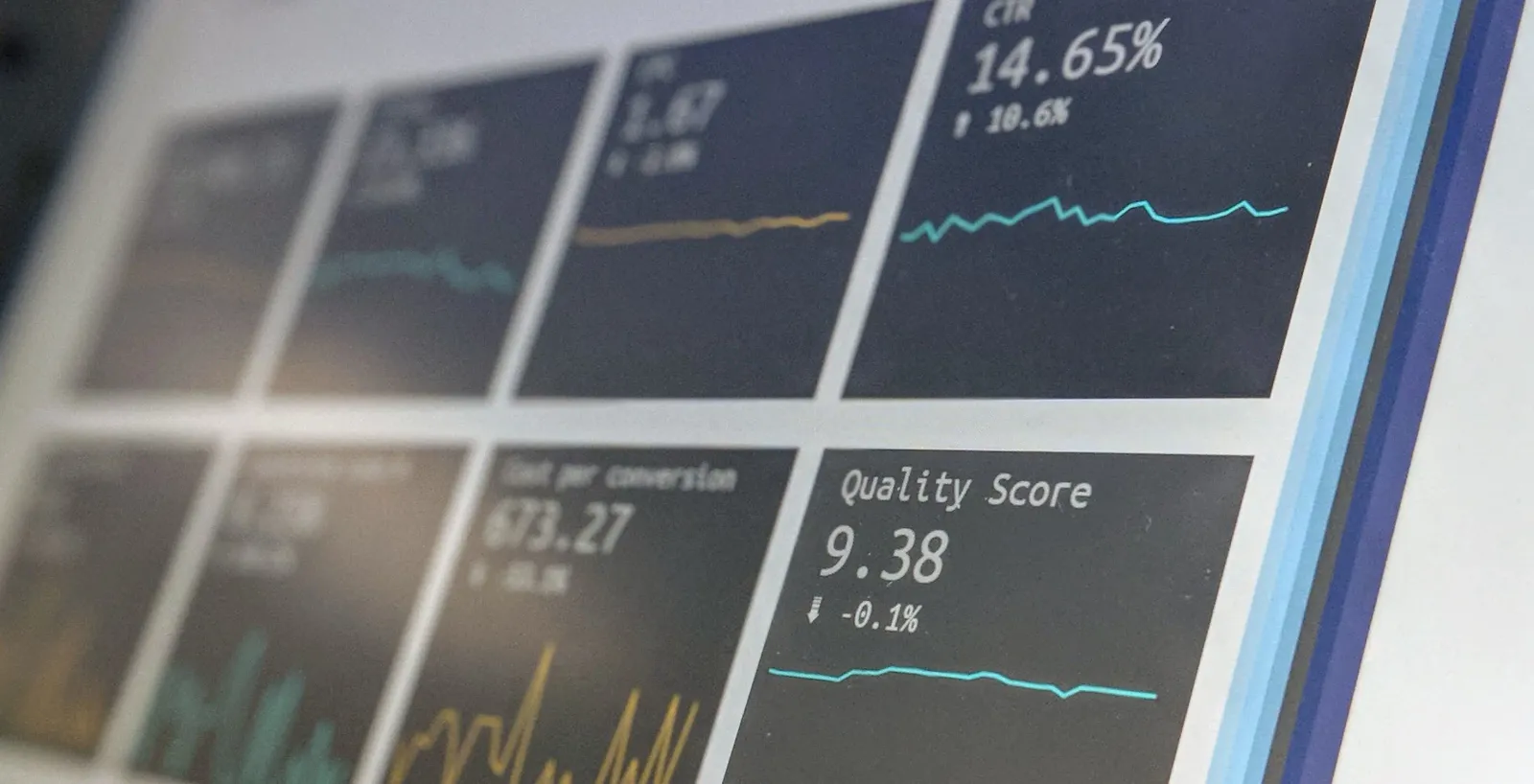
Sunscrapers Team
20 January 2023, 8 min read

What's inside
- Intro
- Banking
- Payments
- Security
- Analytics & Reporting
- Investments
- Risk Management in the Insurance industry & investments
- BlockChain
- Main benefits of technology in Financial Services
- Disadvantages of technology in financial services
- Summary
Intro
I think it’s pretty safe to say that financial services are one of the most influenced by technology. It’s also a sector that affects all of us - even if we do not realize that.
This industry was (and will continue to do so) always in search of innovations that would simply allow it to be more efficient and tailored to people's needs. Technology enables it to cut costs and automate many processes, making them more efficient and fault-proof.
This article will look at the most important use cases of technology usage in financial services.
Banking
Undoubtedly, the most important part of the technology revolution touches the banking industry. Traditional banking has been declining for years now, and people are getting more used to the fact that most things can be done with just a click of a button. Most young people do not even know what a traditional bank looks like because everything is available online. On top of that, most banks realized that since people are spending time in the banking system, they can sell additional services, like insurance or investment portfolios, along the way.
Payments
The Fintech revolution has brought us new payment methods. It all started with credit cards, but it was just the beginning. Currently, most of us are not even using cards, as we do a lot of shopping online and use payment services like PayPal/Stripe/PayU or e-banking plugins to process transactions. Furthermore, when paying on-site, we are using mobile phones or watches. So something that a few years back was indeed an innovation (plastic cards) is now considered almost obsolete, pushing the frontier further. (Interesting article worth reading: https://tech.eu/2022/11/21/credit-and-debit-cards-the-vinyl-of-payments).
The payment revolution allows non-banking entities to implement their payment methods, like ApplePay or GoogleWallet - making the process safer and more transparent.
Security
Whenever money is involved, the transactions’ security becomes increasingly important. With the new technology in place, the safety of our financial assets is much bigger than before. Biometric data is now being used for protection, which is much more secure than the old password/PIN method. On top of that, financial institutions now have means to protect us from frauds and give us warnings not only about possible problems with access to our assets but also threats like identity theft - something way more dangerous than just losing a few dollars out of our accounts. This again made most of the solutions that existed a few years back and were considered secure - obsolete.
I do not need to mention that access is much more secure now because of data encryption. It’s also much harder to tamper with because of advanced logging and analytics.
Analytics & Reporting
Another aspect that was unimaginable a few years back was analytics and reporting. Some of it is visible to the user - for example, the detailed analysis of our budget with reports containing amounts spent on each category. But that is just the tip of the iceberg. Banks have access to much more data nowadays, allowing them to suggest proper solutions for each user. This part of the fintech revolution has also changed the way banks give loans or insurance companies assess a given person’s risk - this allows people to have better terms for both instruments - as they are tailored to their situation and ability.
Investments
With digital payments, online banking, analytics, and reporting, banks (or other institutions) can now prepare much better investment opportunities for each individual. They know precisely how much money we have, what we spend, and our risk willingness. Thanks to that, they can suggest investment portfolios tailored directly for each person.
Risk Management in the Insurance industry & investments
I mentioned this before, but I will put it in verbatim. Risk management is the key to the insurance and investment industry. With more and more data flowing in, companies can now have much better control over those factors. For most end-users, it’s a good thing, as the rates for insurance are based on their risk factor, not the group one - as it was done before (mainly because of lack of proper data).
BlockChain
Last but not least is the Blockchain revolution. This topic is still a bit vague for most people, but the basic principle is simple - blockchain technology encourages the safety and transparency of the data. Most people naturally will think of cryptocurrencies, but that is just the result of blockchain technology. Naturally, cryptocurrencies are a vital part of the financial landscape nowadays, but my request to you, the reader, would be to keep those terms simple. Whatever you think of cryptocurrency, blockchain technology CAN be used to make your data much more secure than ever before. And that is the most important lesson to be learned in this manner. As for the crypto world - I will not dwell on that much because that is a topic for a series of articles, not just a small chapter here. But even still, this cannot be left out when writing this piece, so consider it mentioned.
Main benefits of technology in Financial Services
Now that we have analyzed the main areas of use of technology in financial services let’s take a look at the key benefits that fintech is bringing us.
Safety
As mentioned countless times, it proves to be the most significant benefit. Never before were our assets as safe as they are now. Some people may say that there are still a lot of frauds, but that does not mean anything. Frauds have been there long and will be with us forever. But let’s remember that for the first time in history, the amount of data gathered and analyzed makes it so much harder to do any harm or do it in an untraceable way. Let’s just think of simple mechanisms like cashback, which makes card transactions much safer. Those mechanisms are impossible to implement when dealing with cash, as they would be untraceable.
Moreover, the data gathered by financial institutions, together with blockchain technology, makes our data almost impossible to be tampered with or lost - another aspect of safety that is now possible thanks to technology.
Convenience
No one can say that the current financial industry is inconvenient for the user, with almost all services available from any device.
Accessibility
Because of digital transformation, financial services are also becoming the most accessible. People with all disabilities can use them without leaving home. On the other hand, people who are not technical can still visit the traditional bank and deal with their business much faster than before, as most users are choosing the technology to handle their business. It’s a win-win for everybody - in my opinion - making not a single person be left out in the process.
Overall experience
All those factors make the overall user experience (and I'm not just talking about web/mobile interfaces but also about the UX of the whole process) intuitive and straightforward. This allows the user to focus on what they want to do rather than thinking about HOW it should be done. This gives us better control over our assets and financial situation without the pain of dealing with complicated processes. For the fintech industry, this means hiring fewer people, focusing more on their products, and fitting them to our needs rather than building complex structures to handle simple things - which brings me to the last advantage.
Automation
As mentioned earlier, the fintech revolution brought a lot of data, which would only be problematic if there was no automation. But thanks to RPA (Robotic Process Automation), all data gathered can be analyzed quickly with proper reports created automatically. And suppose we add BigData/AI to this equation. In that case, we can have good reports in place and exceptionally well-adjusted suggestions and scoring mechanisms - which is the key in most financial institutions.
Disadvantages of technology in financial services
Having all those advantages written down, I am obliged to mention some of the widely considered disadvantages. I do not think that any of those are important, but it’s worth noting them to understand what those who do not feel enthusiastic about the fintech revolution can think.
Frauds
I mentioned above that the fintech revolution made it harder to do small-time frauds. But I also need to note that the frauds became more sophisticated and largely scaled. But the cons will always be there - the real issue is how quickly they can be traced and prevented. And the current Fintech scene allows both early discovery and detection.
Cashless society
Some people are also very much afraid of being in a cashless society. This is an ideological argument, so I cannot say much here. The cashless society indeed allows bigger control of its members. And control of the government is something we simply have to accept and know its risk.
Summary
As you can see, the use of technology in the financial world is enormous and has undoubtedly revolutionized the landscape. It has led us to a better world in this regard, and the innovations being brought in almost every day make it exciting. So if you have a fintech product or are thinking about creating one, you should talk to us, as we have vast experience and knowledge and can easily help you to make the right choice regarding technology solutions that truly support your business-oriented goals.


